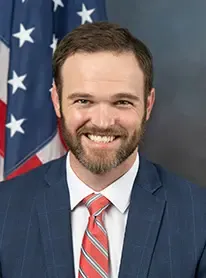
Can Florida’s Hope Program Survive the Storm of Accusations?
In the heart of Florida politics, a flagship initiative designed to uplift residents is now facing a barrage of controversy. First Lady Casey DeSantis has staunchly defended the Hope Florida program, calling out what she deems as 'slanderous, false accusations.' But as allegations of misused funds and political maneuvering swirl, the question remains: Is this well-intentioned effort being overshadowed by deeper issues of transparency and ethics?
Hope Florida, spearheaded by Casey DeSantis, aims to steer Floridians away from government assistance by connecting them with local nonprofits and faith-based groups. During a recent roundtable in Brandon, the first lady emphasized resilience amid scrutiny. 'We are not going to be dissuaded by the critics who have been captivated by willful ignorance,' she declared, vowing to press on despite investigations from Republican lawmakers. This program, once celebrated for helping thousands reduce reliance on public aid, is now under the microscope for its handling of funds, particularly a $10 million transfer from a Medicaid settlement.
Governor Ron DeSantis has joined the defense, sharply criticizing detractors like Representative Karen Gonzalez Pittman. He labeled her actions as 'fraudulent,' accusing her of spreading propaganda from far-left sources. The governor's comments highlight a growing rift within the Republican party, as Rep. Pittman and others probe claims that the funds were diverted to political action committees (PACs). Reports indicate that James Uthmeier, formerly DeSantis' chief of staff and now Florida's Attorney General, directed grants that funneled money to PACs opposing recreational marijuana legalization. Four former federal prosecutors have suggested this could warrant a Department of Justice investigation, pointing to potential violations of state laws on open meetings and financial transparency.

This isn't the first time Florida's political landscape has grappled with 'dark money' issues. The Florida Chamber of Commerce, tied to a nonprofit involved in the Hope Florida funds, has a history of controversial donations, including those linked to the 2020 'ghost candidate' scandal. As Ben Wilcox of Integrity Florida notes, such practices raise red flags about the need for federal reform to ensure accountability. Critics argue that while Hope Florida has reportedly assisted 30,000 individuals, the lack of detailed performance data fuels skepticism. Elizabeth Phillips, a Hope navigator, counters that much of the program's impact occurs in unquantifiable, personal moments, but this hasn't quelled calls for audits and greater openness.
The DeSantis administration maintains that all actions were 'legally sound and advanced core policies.' Yet, Rep. Alex Andrade, leading a House inquiry, dismisses this as dismissive of public trust. With Casey DeSantis potentially eyeing a gubernatorial run in 2026, the program's fate could influence Florida's political future. As the governor promotes a successor in his own image—someone 'willing to get out there and fight'—the broader implications for state governance loom large.

In summary, the Hope Florida controversy underscores the tension between ambitious social programs and political accountability. Does this signal a need for overhaul in how Florida handles public funds? As debates intensify, one thing is clear: the program's success or failure could reshape public perception of the DeSantis era. We invite readers to share their thoughts—do you support Hope Florida's mission, or do the allegations raise valid concerns? Leave a comment below and help us explore this pivotal issue.